Michael Saidani
LGI
Artificial Intelligence for Sustainability: Facilitating Sustainable Smart Product-Service Systems with Computer Vision
Mar 27, 2023
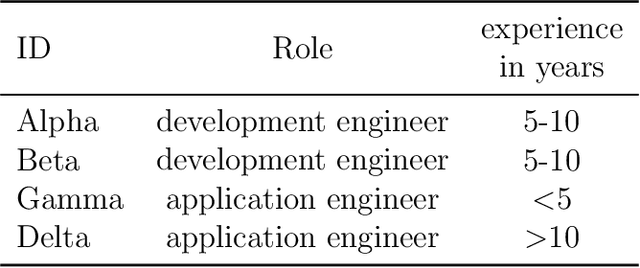
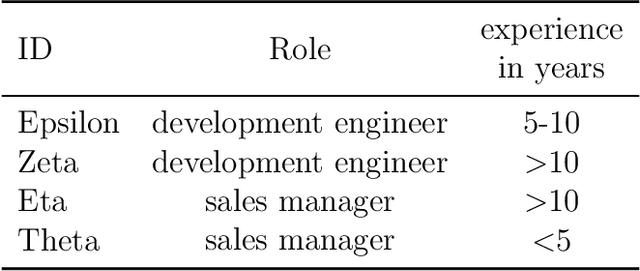
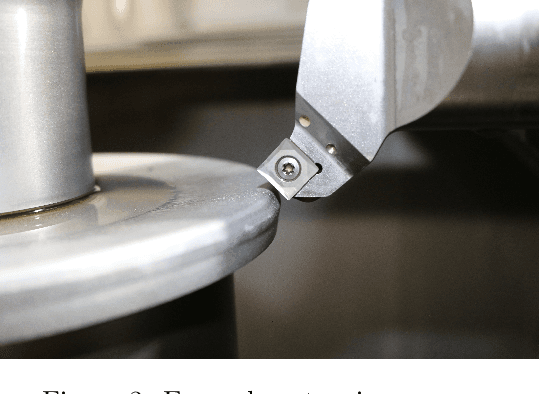
Abstract:The usage and impact of deep learning for cleaner production and sustainability purposes remain little explored. This work shows how deep learning can be harnessed to increase sustainability in production and product usage. Specifically, we utilize deep learning-based computer vision to determine the wear states of products. The resulting insights serve as a basis for novel product-service systems with improved integration and result orientation. Moreover, these insights are expected to facilitate product usage improvements and R&D innovations. We demonstrate our approach on two products: machining tools and rotating X-ray anodes. From a technical standpoint, we show that it is possible to recognize the wear state of these products using deep-learning-based computer vision. In particular, we detect wear through microscopic images of the two products. We utilize a U-Net for semantic segmentation to detect wear based on pixel granularity. The resulting mean dice coefficients of 0.631 and 0.603 demonstrate the feasibility of the proposed approach. Consequently, experts can now make better decisions, for example, to improve the machining process parameters. To assess the impact of the proposed approach on environmental sustainability, we perform life cycle assessments that show gains for both products. The results indicate that the emissions of CO2 equivalents are reduced by 12% for machining tools and by 44% for rotating anodes. This work can serve as a guideline and inspire researchers and practitioners to utilize computer vision in similar scenarios to develop sustainable smart product-service systems and enable cleaner production.
Can Machine Learning Tools Support the Identification of Sustainable Design Leads From Product Reviews? Opportunities and Challenges
Dec 17, 2021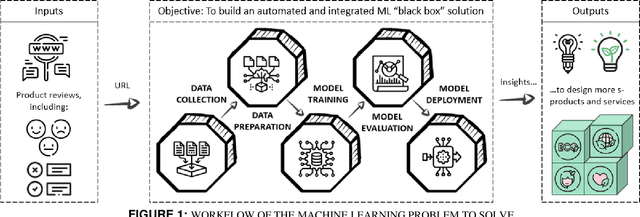
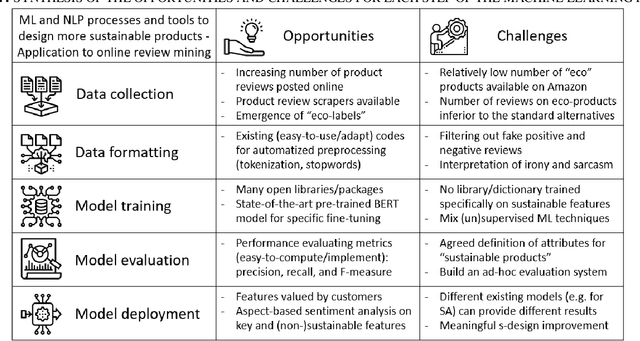
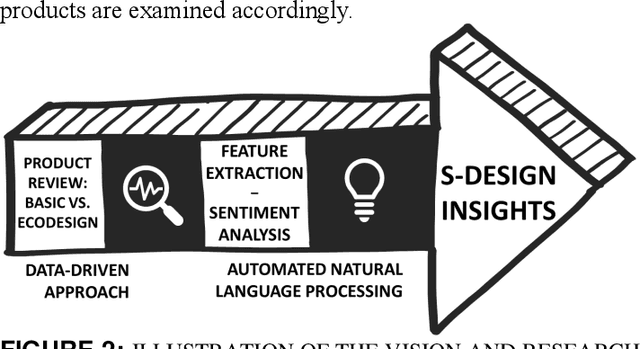
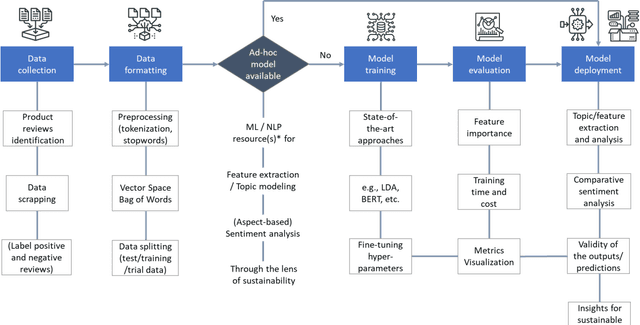
Abstract:The increasing number of product reviews posted online is a gold mine for designers to know better about the products they develop, by capturing the voice of customers, and to improve these products accordingly. In the meantime, product design and development have an essential role in creating a more sustainable future. With the recent advance of artificial intelligence techniques in the field of natural language processing, this research aims to develop an integrated machine learning solution to obtain sustainable design insights from online product reviews automatically. In this paper, the opportunities and challenges offered by existing frameworks - including Python libraries, packages, as well as state-of-the-art algorithms like BERT - are discussed, illustrated, and positioned along an ad hoc machine learning process. This contribution discusses the opportunities to reach and the challenges to address for building a machine learning pipeline, in order to get insights from product reviews to design more sustainable products, including the five following stages, from the identification of sustainability-related reviews to the interpretation of sustainable design leads: data collection, data formatting, model training, model evaluation, and model deployment. Examples of sustainable design insights that can be produced out of product review mining and processing are given. Finally, promising lines for future research in the field are provided, including case studies putting in parallel standard products with their sustainable alternatives, to compare the features valued by customers and to generate in fine relevant sustainable design leads.
 Add to Chrome
Add to Chrome Add to Firefox
Add to Firefox Add to Edge
Add to Edge